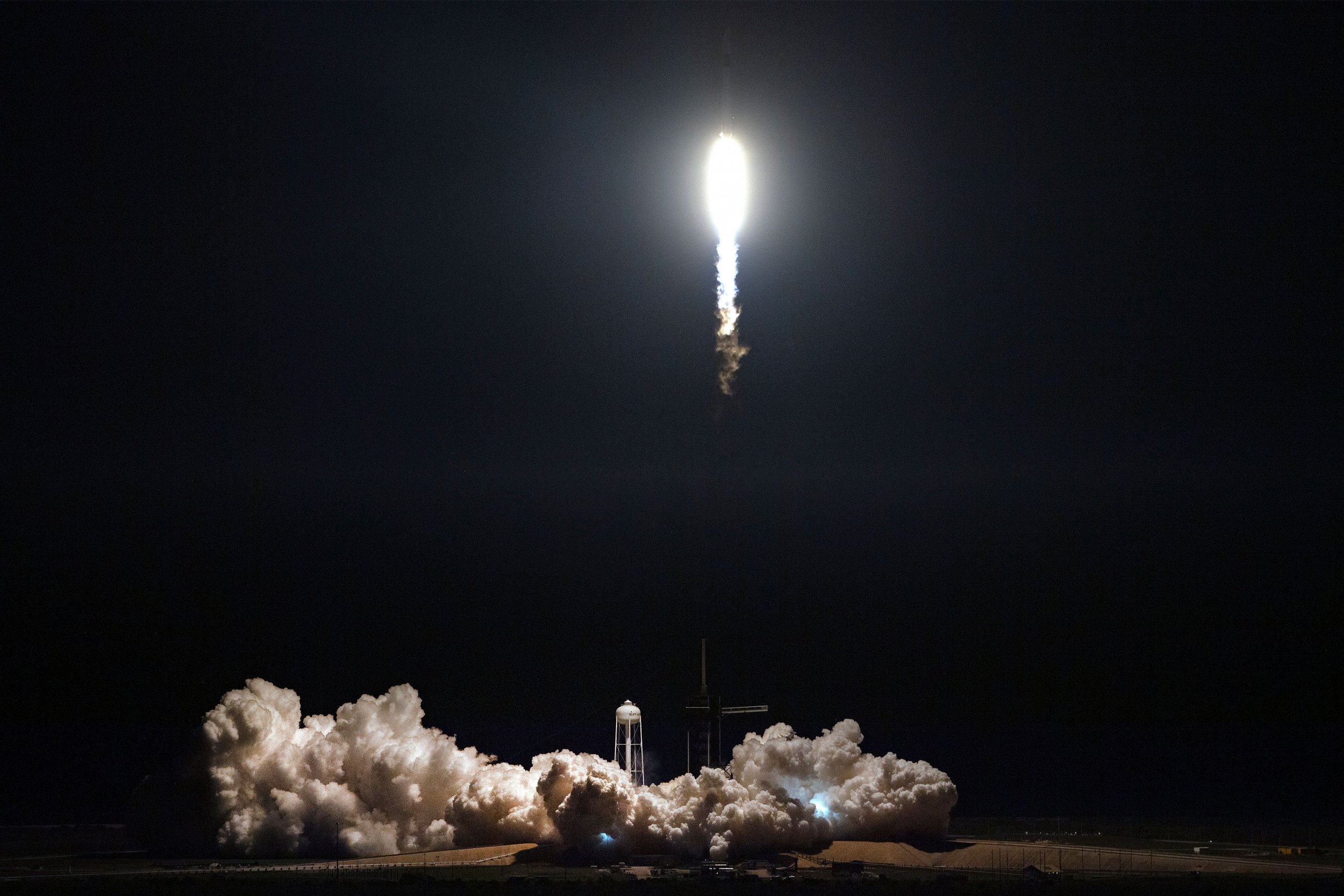
Last night, SpaceX called off the latest launch of the Falcon 9 rocket from Cape Canaveral, Florida, about 15 minutes before scheduled lift-off time, due to excess upper-level winds. This postponed the first step of the company's ambitious Starlink internet satellite initiative for at least one day.
Fortunately, Elon Musk's company will get another shot at launching the first 60 of more than 12,000 planned Starlink satellites when a back-up window opens up tonight at 10:30 p.m. ET, weather permitting.
At 18.5 tons, the payload will be the heaviest that any SpaceX rocket has ever attempted to launch into space, according to the company.
The first 60 satellites—each of which weighs around 500 pounds—are intended to help SpaceX conduct important testing before upcoming launches over the next few months, which will carry similar payloads into orbit and kick-start "operational" capabilities of the Starlink system, Ars Technica reported.
The idea behind the Starlink project is to provide global internet coverage from space with very short lag times. Current internet satellites struggle to provide this because many are in very high geostationary orbits—around 22,000 miles above the Earth's equator—meaning that data takes a relatively long time to travel between the surface and back, The Verge reported.
Watch a live stream of the launch below.
To address this, Starlink aims to put around 12,000 satellites in orbits ranging from between 208 to 823 miles above the Earth's surface. The reason for launching so many satellites is that those in lower orbits do not provide as much coverage as those positioned at higher altitudes.
Musk himself recognized the scale of the challenge presented by the Starlink project in a teleconference call with reporters on Wednesday: "This is very hard. There is a lot of new technology, so it's possible that some of these satellites may not work. There's a small possibility that all of these satellites will not work," the SpaceX founder said, according to Ars Technica.
Furthermore, there is concern from some quarters that the upcoming launches of large satellite batches by SpaceX—and others pursuing similar aims, such as European company OneWeb—could increase the risk of dangerous collisions and space debris. Currently, there are around 4,000 intact spacecraft in Earth's orbit—of which just under 2,000 are still operational. The Starlink project alone would outnumber these several times over.
Musk says SpaceX has implemented several measures to mitigate the risks of creating debris—for example moving some satellites to lower orbits or planning to dispose of them over water—while also arguing that the chances of collisions are actually small.
"The space junk thing—we don't want to trivialize it or not take it seriously, because we certainly do take it seriously—but it's not crowded up there. It's extremely sparse," Musk said, according to The Verge.
If these challenges can be overcome, Musk says, Starlink could provide significant benefits over currently available services. This would be especially helpful for those living in rural or remote areas.
"This would provide connectivity to people that either don't have any connectivity today, or where it's extremely expensive and unreliable," he said.
Uncommon Knowledge
Newsweek is committed to challenging conventional wisdom and finding connections in the search for common ground.
Newsweek is committed to challenging conventional wisdom and finding connections in the search for common ground.
About the writer
Aristos is a Newsweek science reporter with the London, U.K., bureau. He reports on science and health topics, including; animal, ... Read more
To read how Newsweek uses AI as a newsroom tool, Click here.








